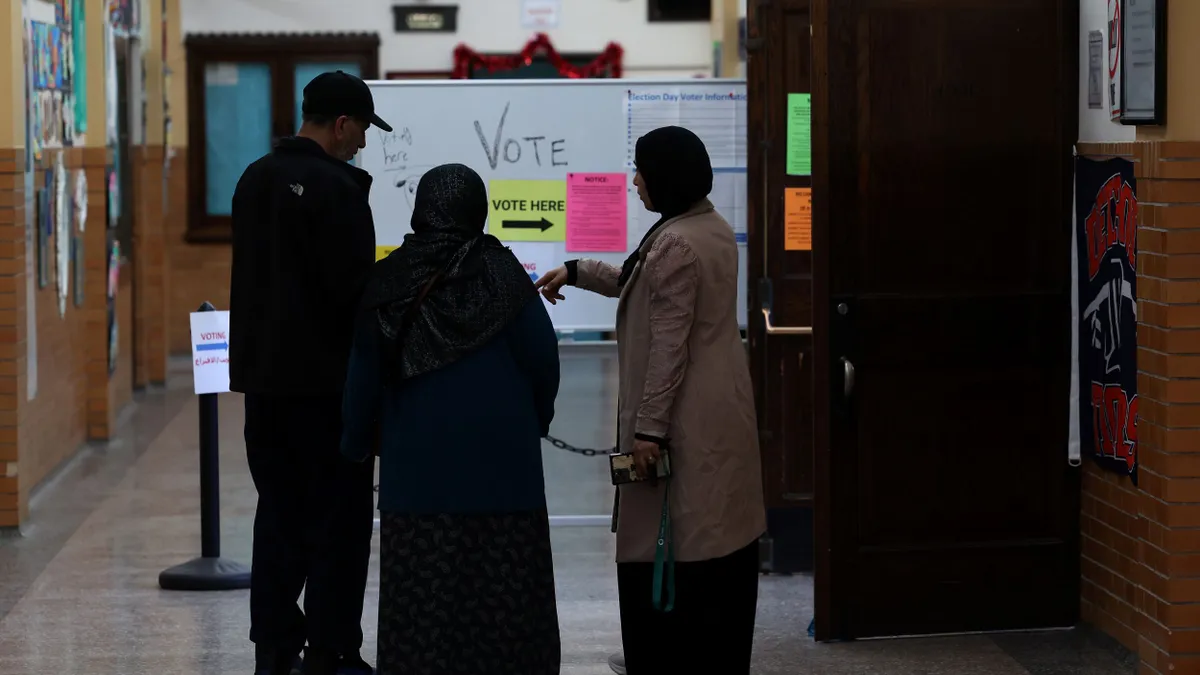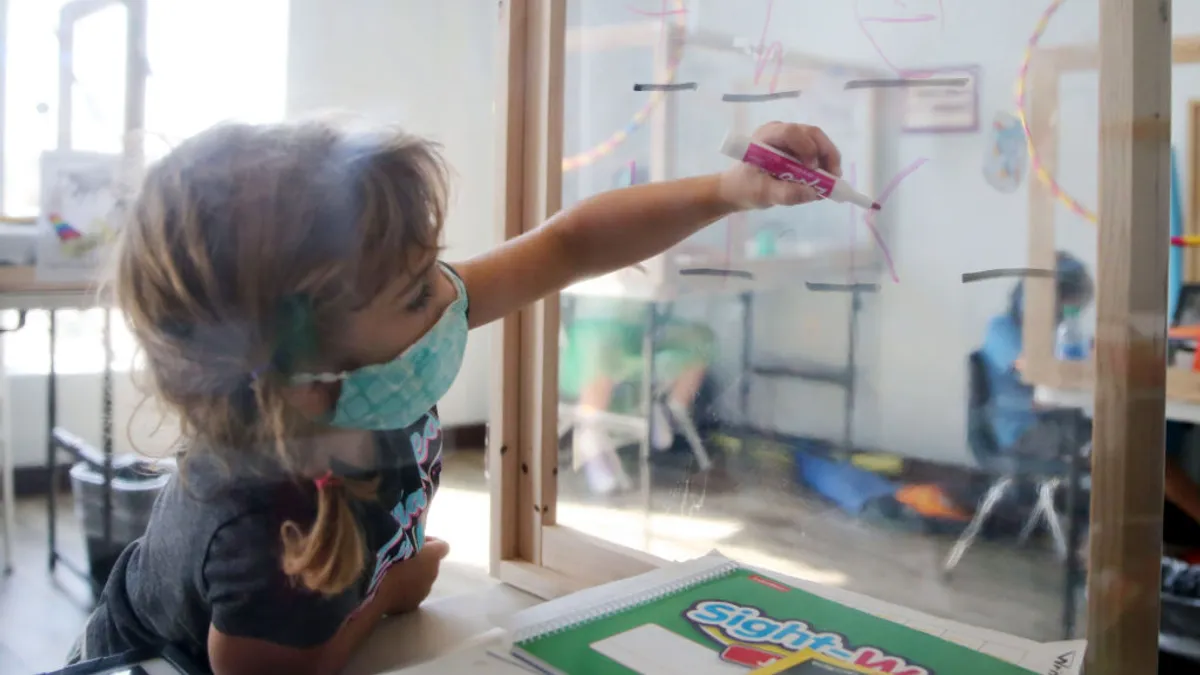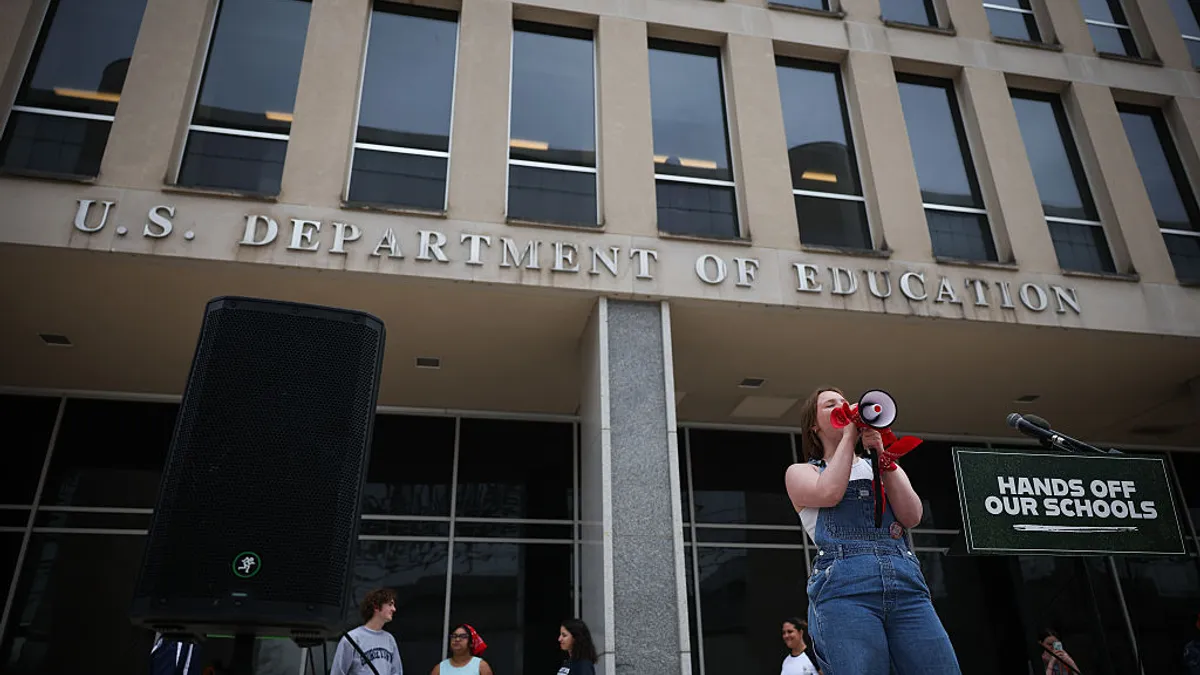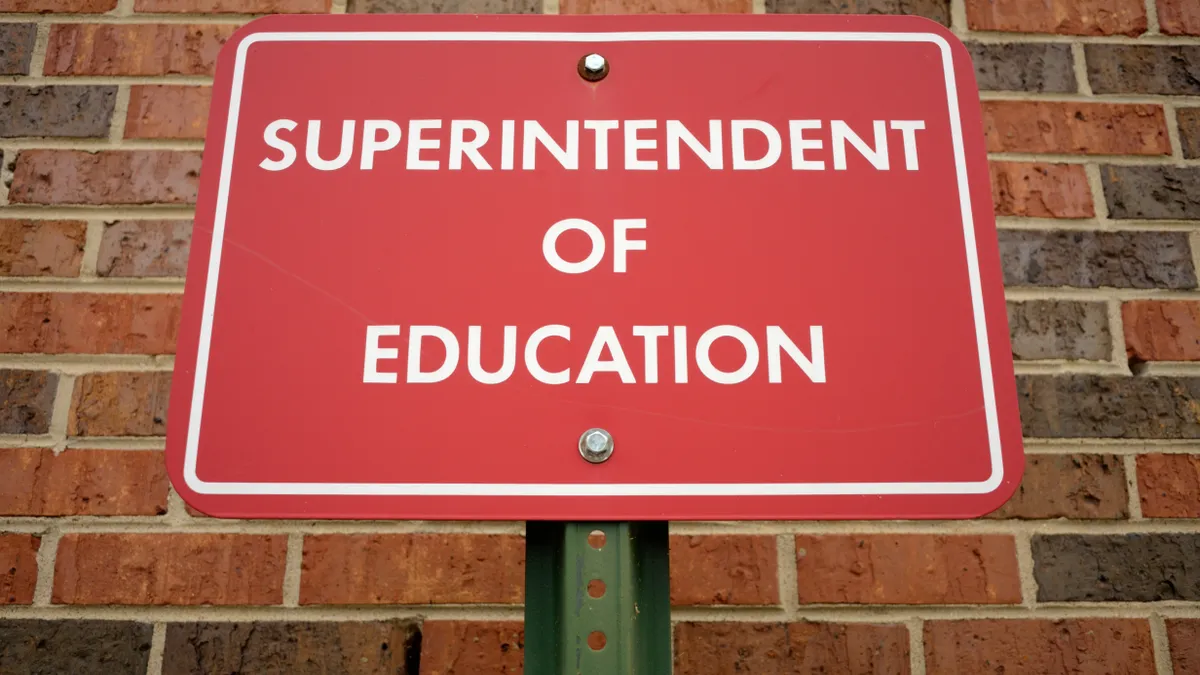Election day is here and school leaders have been preparing for the last few weeks — even months — for this contentious moment to help their students, families and staff brace for and process whatever the outcome may be.
Externally, some principals and superintendents have already sent out public messages to their school communities ahead of Election Day.
Minneapolis Public Schools, for instance, posted an update in the district’s weekly family newsletter reminding parents that school would be closed on Election Day for a teacher record keeping day. Additionally, the district’s update said it recognizes that “election results may bring up many emotions” and that staff are available to help students “process their feelings in an educational, civil and respectful environment.”
“MPS will continue to welcome, support and encourage each student every day, regardless of election outcomes,” the district update said.
Todd Dain, principal of Shawnee Mission South High School in Overland Park, Kansas, also sent a letter to families last week acknowledging that most people believe this year’s election will be critical to determining the nation’s future — “even if we may not agree on what the best outcome would be.”
And at the state level, the Minnesota Association of Secondary School Principals provided tips that principals could share with staff as they geared up for the election and its aftermath. MASSP’s advice includes promoting a respectful learning environment, avoiding political endorsements and preparing for emotional reactions, said Mary Pat Cumming, a National Association of Secondary School Principals board member and principal of The Fine Arts Interdisciplinary Resource School for Arts in Minneapolis.
Cumming said she stays in touch with other Minneapolis principals and that while the election is making them nervous, they have been collaborating for a while on preparation and messaging for this day.
“On a personal level, I feel the weight of this principalship in my responsibility for the emotional safety of my staff and my students,” Cumming said, adding that many of them are students and staff of color. Cumming said has to consider how the election results will affect those students and staff — and that there may be absences tied to the outcome.
Cumming’s school is located in downtown Minneapolis, where the aftermath of George Floyd’s murder by a police officer in 2020 led to city riots. Cumming said that moment has caused her to really think through how she’s best supporting Black students on a daily basis, but especially as tense events like this year's election come to the forefront.
As the results of the 2024 presidential contest unfold Tuesday night and possibly into the following days, here are three themes popping up for school and district messaging to families.
A focus on unity
The National School Public Relations Association recommends K-12 leaders acknowledge the strong and divisive feelings tied to this election’s outcome. At the same time, district communications should promote civility and respect, said Melissa McConnell, NSPRA’s manager of professional development and member engagement.
Cumming said it’s crucial that schools focus on unity in their communications.
“When we are in the school building, our political views and political endorsements … they’ve got to be moved to the side,” Cumming said. “We are first and foremost here to serve and educate children, and we have to be supportive in that process.”
Likewise, Dain said when he wrote to Shawnee Mission South High School families, it was important to call out that the school’s common goal is to take care of all students and their families.
Offering supports
Dain also acknowledged that schools should be a safe place for students to process and express their emotions about the election. However, he told families and staff that the process of helping students navigate those emotions should “remain as apolitical as possible.”
Overall, Dain said focusing on school culture surpasses any communication strategy. If schools foster a culture where students are comfortable forming relationships with a trusted adult in the building, they will be more likely to feel safe and heard during stressful events such as Election Day.
When communicating to families about Election Day preparation, it’s common for most schools to point to their available mental health resources, McConnell noted.
In Minneapolis, Cumming said she is preparing to offer additional wellness supports to her students. For instance, she plans to remove time limits for use of the school’s Zen Den — where students are allowed to go for mental health breaks — on Wednesday and potentially the rest of the week.
Encouraging critical thinking
Students need to learn the lifelong skill of how to think critically and sift through misinformation, Cumming said. And the election serves as an opportunity for schools to teach students that skill, she said.
For instance, as students scroll through social media, they should be “critical analyzers” of what they see rather than just believing divisive, one-sided perspectives on Instagram and other platforms, Cumming said.
That’s where schools step in, she said. “How can we help our young people become critical consumers of information and, from there, make their own decisions?”
McConnell added that while it’s not schools’ responsibility to directly address misinformation in national elections, district leaders can be proactive about communicating local ballot initiatives that impact their schools, such as a bond issue or K-12 funding initiative. Creating FAQ pages about such ballot questions allows schools to get ahead of any potential misinformation in local elections, she noted.





















